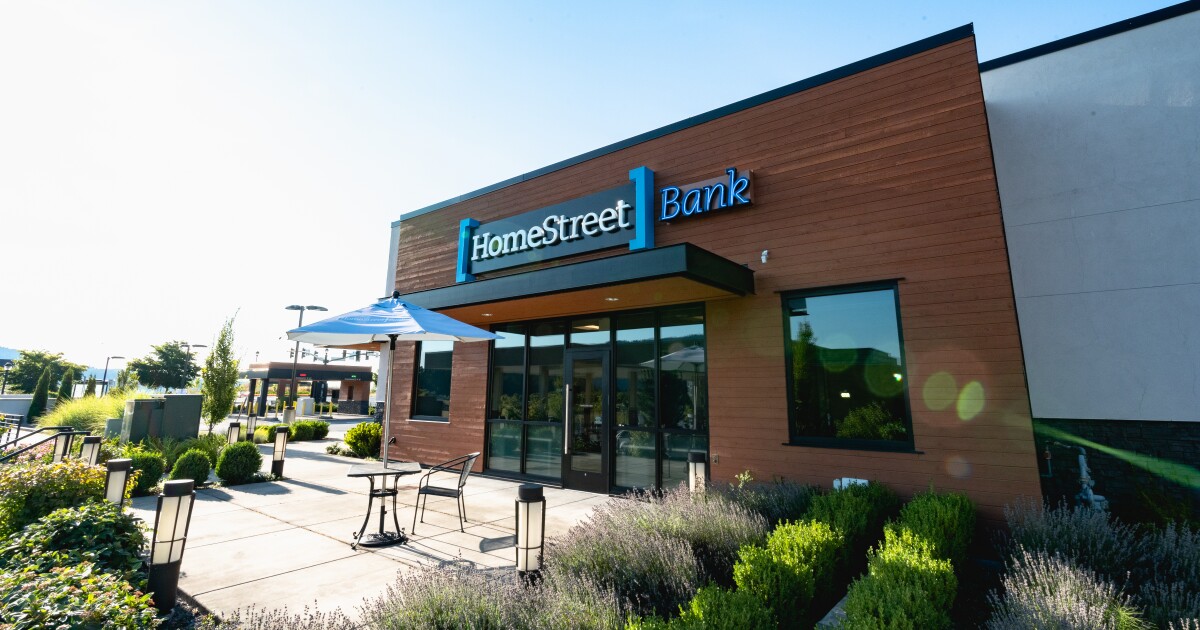
The arduous courtship between FirstSun Capital Bancorp and HomeStreet is officially over, with the companies signing an agreement that nixes their attempt at a merger.
The companies had held out hope that they'd get skeptical regulators to sign off on their $286 million deal. But canceling it is "in the best interests of their respective companies," the two banks said Tuesday in separate securities filings. The cancellation also frees HomeStreet to pursue other options.
The split between the Denver-based FirstSun and Seattle-based HomeStreet comes after state and federal regulators declined to sign off on the deal. Sensing some path forward, the banks had said in late October that they were exploring "
FirstSun is "disappointed with the outcome" but is focused on growing in its local markets, CEO Neal Arnold said in a statement Tuesday. Beyond Colorado, FirstSun and its bank subsidiary Sunflower Bank operate in markets including Texas and the Southwest.
"We are proud of our strong history of earnings performance and we remain as healthy and strong as ever," Arnold said. "Further, we remain well-positioned to continue our strong performance and take advantage of the growth opportunities across all the attractive markets in our footprint."
HomeStreet declined a request for comment.
Analysts say the deal's cancellation means the real estate-heavy HomeStreet is up for grabs for another buyer. The company's stock dropped in 2023 over fears of high interest rates putting pressure on its multifamily loan portfolio, prompting the bank to
In a joint press release last month, HomeStreet CEO Mark Mason said regulators told the bank "there were no regulatory concerns specifically related to HomeStreet that prevented approval of the merger."
The inclusion of that line could mean "new suitors could emerge" for HomeStreet, Wedbush Securities analyst David Chiaverini wrote in a note to clients this month. He noted the "significant buyer interest" that HomeStreet got in the initial marketing of its sale.
The most likely scenario is for HomeStreet to find another buyer, Piper Sandler analyst Matthew Clark wrote in a note to clients, though he also questioned whether it can get the same level of interest and price it did before.
Though bank stock prices have risen since President-elect Donald Trump's victory,
Still, HomeStreet's sale to another bank may be preferable "since going it alone would likely require more onerous loan sales" and require some tough decisions, Clark wrote.
The bank has laid out plans to sell some $800 million in multifamily loans, part of a broader effort to reduce its outsized commercial real estate concentration.
But that amount doesn't appear to be enough, Clark wrote, flagging that it would only reduce its CRE concentration to 538% of its capital. While that would be down from 620%, it remains far above the 300% threshold that regulators have laid out in past guidelines and that's
A more meaningful reduction could require HomeStreet to raise more capital and dilute existing shareholders, he wrote.
"We think more loan sales would be necessary and require a dilutive capital raise," Clark wrote.
The two banks announced the deal in mid-January, pitching it as a chance to create a "premier regional bank" that does business in attractive U.S. markets. In addition to its Pacific Northwest home, HomeStreet also operates in Southern California and Hawaii. FirstSun has a significant presence in the Southwest, and its bank subsidiary Sunflower Bank is based in Dallas.
FirstSun was regulated by the Office of the Comptroller until this year, when the OCC sent signals it would block its purchase of HomeStreet over the latter's commercial real estate portfolio.
With OCC approval unlikely, FirstSun and HomeStreet
But late last month, the companies said regulatory approvals had not been obtained after discussions with the central bank and Texas regulators.
"We are disappointed in the process to date, but we remain hopeful that we will be able to continue productive discussions with regulators in order to obtain regulatory approval," Arnold said last month.
Arnold said the bank had "worked tirelessly to obtain regulatory approval" but that the process has "become more challenging" of late. Bankers have been hopeful the return of the Trump administration will ease the



